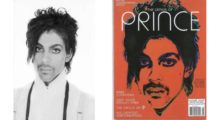Supreme Court
-
Warhol v. Goldsmith: a Narrow Decision Preserves Fair Use As We Know It for Filmmakers

Fair use, a crucial right. Since 2005, when documentary filmmakers created their Documentary Filmmakers Statement of Best Practices in Fair Use, fair use has become settled industry practice. Fair use is what lets people quote from their culture for free, in the right circumstances. Ring tone in the scene? Paintings in the background? Want to use news clips to highlight the importance of events in the film or a stanza of a song you’re talking about? Check first to see if fair use applies; it very well might. Insurers cover fair uses, too, because they know the risk is low. Fair […]
by Patricia Aufderheide, Brandon Butler and Peter Jaszi on May 25, 2023 -
ARTFUL DODGERS
On June 21st, the Supreme Court blinked. It used a legal technicality to sidestep determining the status of two long-simmering “indecency” cases and, thus, the legal status of broadcast television and radio, the traditional mass communications media. One case involves the spoken word and was against Fox over what are known as “fleeting expletives,” words like “fuck” and “shit” uttered by Cher, Nicole Richie and Bono at the Billboard Music Awards in 2002 and 2003. The second was against ABC for showing what can be called “fleeting nudity,” the brief display of a female actress’ nude buttocks during an episode […]
by David Rosen on Jun 25, 2012 -
SUPREME COURT STRIKES DOWN INFRINGING DOC RULE
Yesterday, in an 8-1 decision, the U.S. Supreme Court struck down a statute that would have infringed on certain documentary makers’ First Amendment rights. Relating to the depiction of animal cruelty and killing on screen, the statute, by criminalizing such depictions, would have limited filmmakers’ abilities to cover any number of subjects ranging from hunting to our food industry to, ironically, animal abuse itself. The IFP New York was one of several organizations filing an amicus brief in support of the filmmaker filing the case, a documentarian named Robert Stevens who was sentenced to 37 months in Federal prison for […]
by Scott Macaulay on Apr 21, 2010
